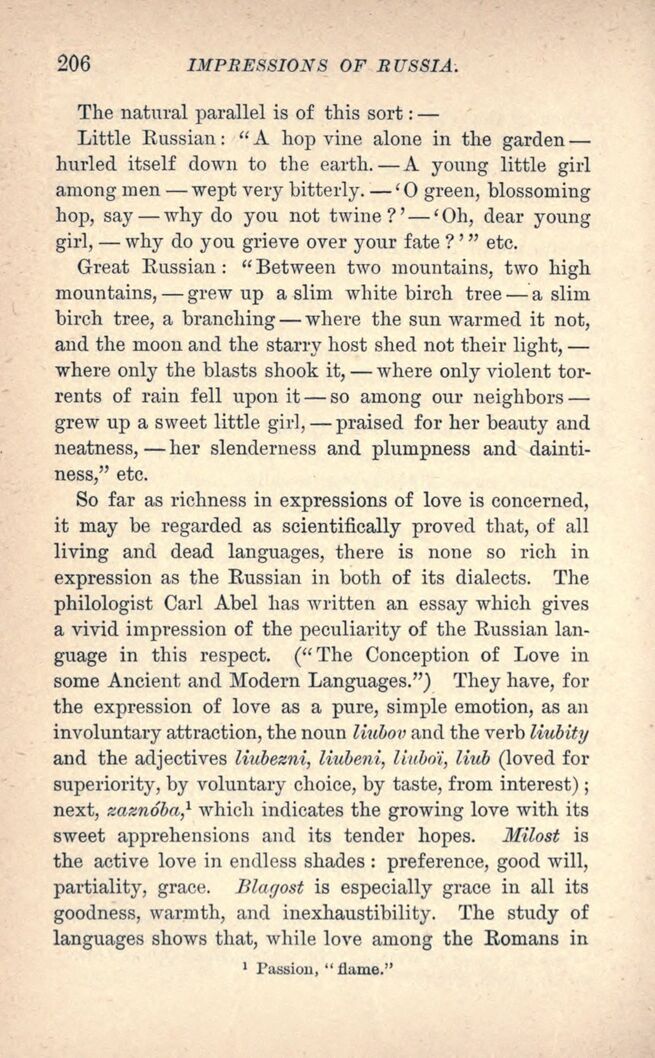
Full resolution (JPEG) - On this page / på denna sida - Impressions of Russian Literature - II

<< prev. page << föreg. sida << >> nästa sida >> next page >>
Below is the raw OCR text
from the above scanned image.
Do you see an error? Proofread the page now!
Här nedan syns maskintolkade texten från faksimilbilden ovan.
Ser du något fel? Korrekturläs sidan nu!
This page has been proofread at least once.
(diff)
(history)
Denna sida har korrekturlästs minst en gång.
(skillnad)
(historik)
The natural parallel is of this sort: —
Little Russian: “A hop vine alone in the garden —
hurled itself down to the earth. — A young little girl
among men — wept very bitterly. — ‘O green, blossoming
hop, say — why do you not twine?’ — ‘Oh, dear young
girl, — why do you grieve over your fate?’” etc.
Great Russian: “Between two mountains, two high
mountains, — grew up a slim white birch tree — a slim
birch tree, a branching — where the sun warmed it not,
and the moon and the starry host shed not their light, —
where only the blasts shook it, — where only violent
torrents of rain fell upon it — so among our neighbors —
grew up a sweet little girl, — praised for her beauty and
neatness, — her slenderness and plumpness and
daintiness,” etc.
So far as richness in expressions of love is concerned,
it may be regarded as scientifically proved that, of all
living and dead languages, there is none so rich in
expression as the Russian in both of its dialects. The
philologist Carl Abel has written an essay which gives
a vivid impression of the peculiarity of the Russian
language in this respect. (“The Conception of Love in
some Ancient and Modern Languages.”) They have, for
the expression of love as a pure, simple emotion, as an
involuntary attraction, the noun liubov and the verb liubity
and the adjectives liubezni, liubeni, liuboï, liub (loved for
superiority, by voluntary choice, by taste, from interest);
next, zaznóba,[1] which indicates the growing love with its
sweet apprehensions and its tender hopes. Milost is
the active love in endless shades: preference, good will,
partiality, grace. Blagost is especially grace in all its
goodness, warmth, and inexhaustibility. The study of
languages shows that, while love among the Romans in
<< prev. page << föreg. sida << >> nästa sida >> next page >>